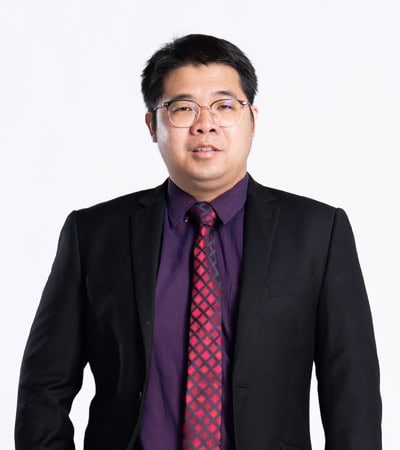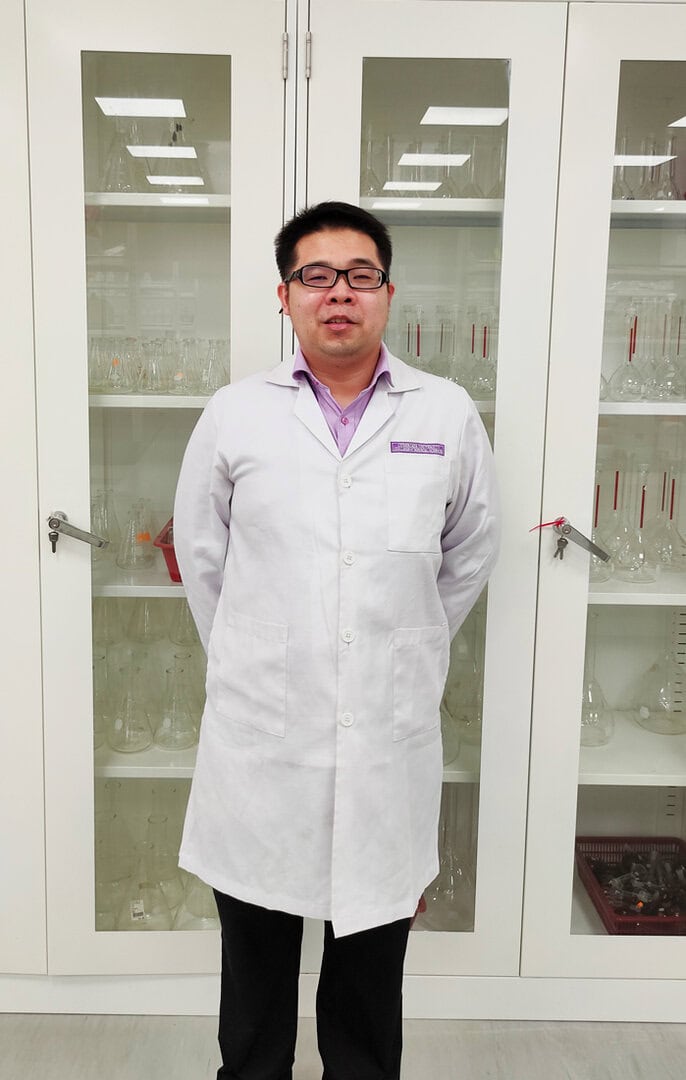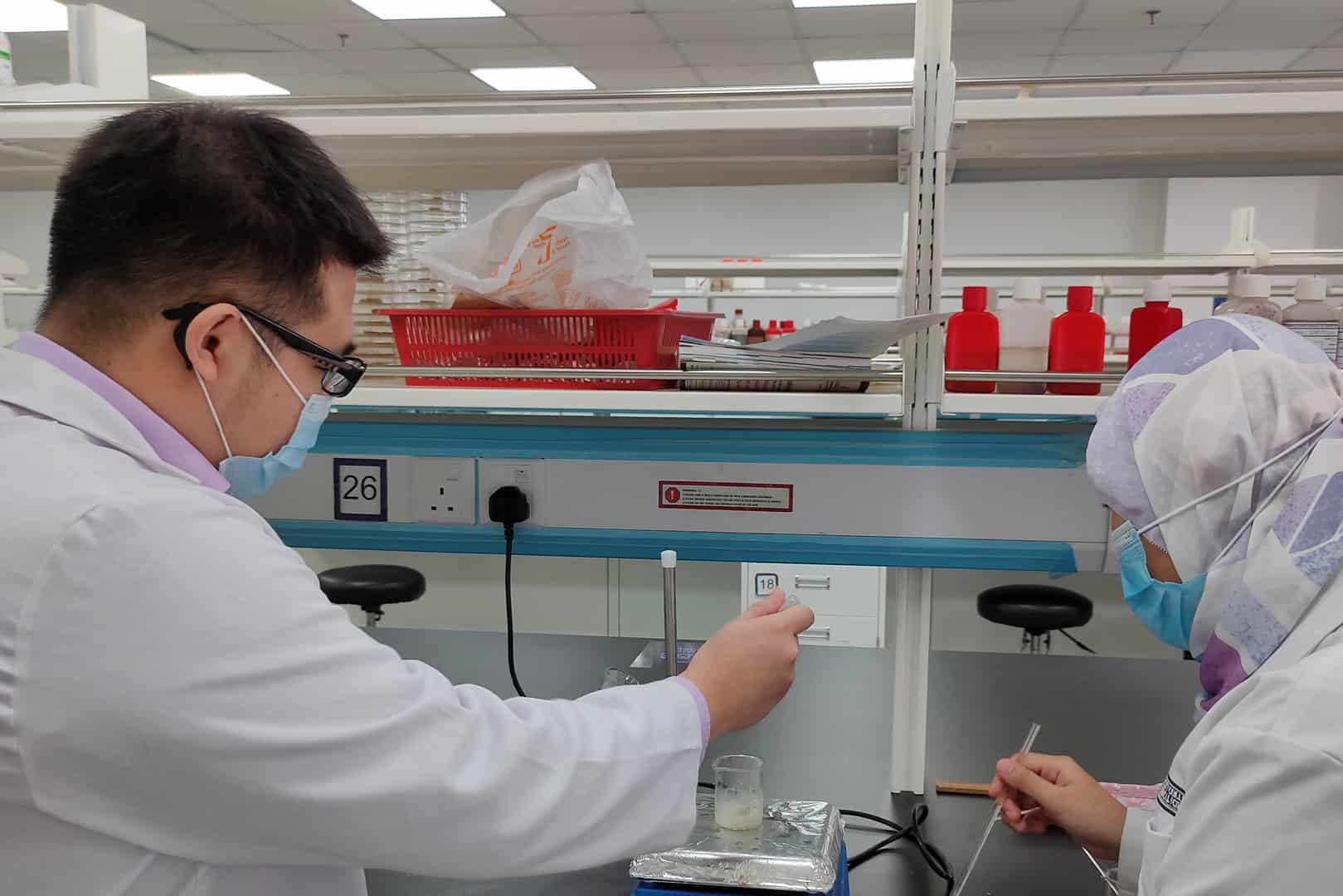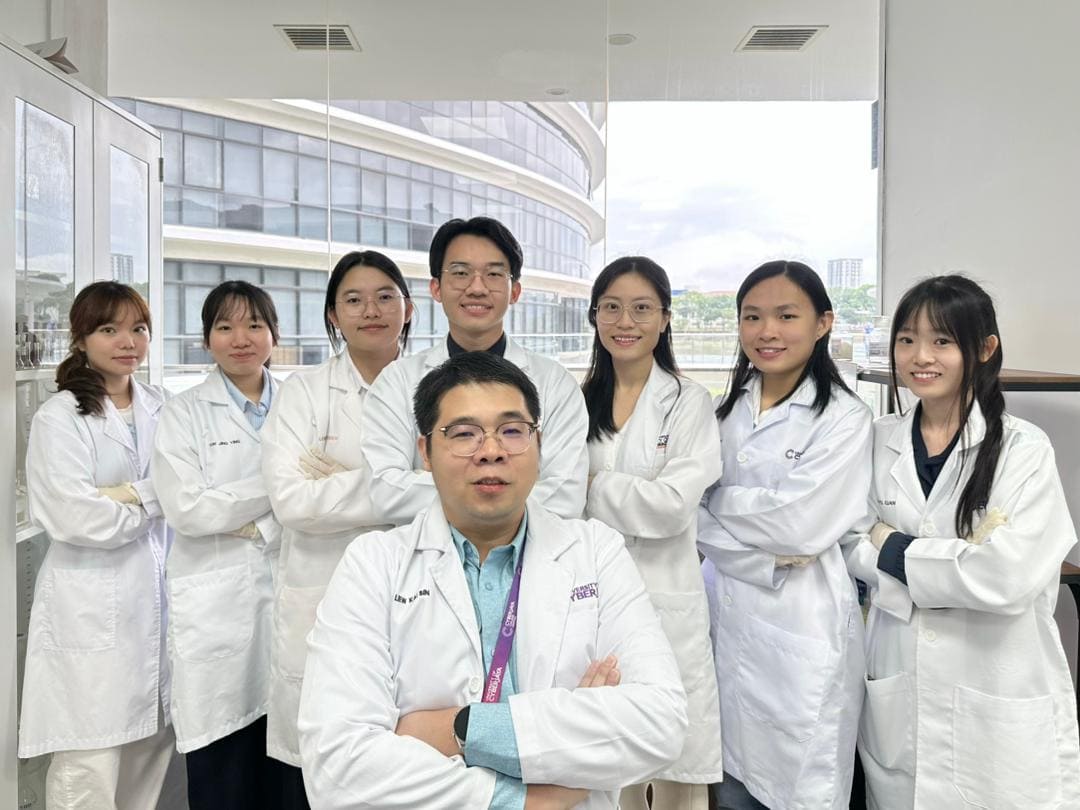
Professor Ts. Dr. Liew Kai Bin
Head of Department
Research & Expertise in Pharmaceutical Technology
Prof. Liew, your background in pharmaceutical technology has led to several impactful innovations. Could you share what initially drew you to the field of Pharmaceutical Technology, and what continues to inspire your research today?
My research journey in pharmaceutical technology began when I realised how formulation science could improve the way patients receive and respond to therapy. What continues to inspire me today is the application of this field — transforming innovative concepts into products that genuinely benefit people.
My current work focuses on advanced drug delivery and cosmeceutical systems, such as fucoidan-based nanoparticles for anti-ageing, probiotic orodispersible films for oral health, and liposomal formulations for skin repair. Each project reflects my belief that research should not end at publication but should move towards real-world application and commercialisation.
Ultimately, seeing our innovations progress from laboratory to impact — and guiding young researchers through that journey — is what keeps me passionate and motivated in pharmaceutical technology.
How do you see the field of pharmaceutical technology evolving over the next decade, particularly in areas such as drug delivery systems and formulation design?
In the next decade, I believe pharmaceutical technology will advance towards personalised and sustainable formulations. Drug delivery systems will become smarter — integrating nanotechnology, biomaterials, and artificial intelligence to achieve precision targeting and controlled release.
Formulation design will no longer focus solely on stability and bioavailability, but also on patient experience, sustainability, and manufacturing scalability. For instance, biopolymer-based nanocarriers, 3D-printed dosage forms, and AI-assisted formulation optimisation will become mainstream tools in research and development.
Another significant shift will be the blurring of boundaries between pharmaceuticals and cosmeceuticals, with greater emphasis on preventive and wellness-driven formulations — an area my team has been exploring through innovative systems such as fucoidan marinosomes and probiotic films.

What are some of the most exciting or emerging technologies that you believe could transform how we develop or deliver medications?
I believe the future of medication development will be driven by technologies that make treatments more precise, personalised, and sustainable. Nanotechnology will continue to revolutionise drug delivery through targeted and controlled release systems, while AI and machine learning will accelerate formulation design and predict optimal combinations.
At the same time, the use of natural biomaterials such as fucoidan, chitosan, and hyaluronic acid will enhance safety and biocompatibility — areas I am actively exploring in my wound-healing and cosmeceutical projects.
Research Impact & Innovation
Your research team has consistently received recognition at both national and international levels. How do these achievements reflect UoC’s growing reputation in pharmaceutical and healthcare innovation?
Our team’s national and international recognition reflects the University of Cyberjaya’s strong commitment to research excellence and innovation. Each award and publication demonstrates not only the scientific quality of our work but also the University’s growing ability to translate research into real-world impact — particularly in advanced drug delivery, cosmeceutical innovation, and translational pharmaceutics.
Beyond awards, what kind of real-world impact do you hope your work in pharmaceutical technology will have on patients and the healthcare industry?
Beyond awards, my ultimate goal is for our research to make a tangible difference in patients’ lives and in how the healthcare industry approaches formulation innovation. I hope our work in advanced drug delivery systems and cosmeceutics will lead to therapies that are not only more effective but also safer, more accessible, and more comfortable for patients.
For example, nanoparticle-based wound-healing films and probiotic orodispersible formulations have strong potential to improve treatment compliance and reduce side effects.

From your perspective, what are the biggest challenges facing researchers today — and how can universities help overcome them?
One of the major challenges researchers face today is limited access to advanced research facilities and sustainable funding. Many promising ideas struggle to progress beyond the conceptual stage because researchers spend significant time securing grants instead of focusing on This challenge is especially evident in emerging institutions where infrastructure development is still catching up with research ambitions.
Universities can help by investing strategically in shared core facilities, simplifying funding application processes, and promoting collaborative or industry-linked research that attracts external support. At the same time, building a strong research ecosystem — with mentorship, grant-writing training, and interdisciplinary platforms — can help researchers translate ideas into impactful outcomes despite resource limitations.
Academic Leadership & Mentorship
As Head of the Department of Pharmaceutical Technology, how do you encourage research excellence and innovation among your staff and students?
As Head of the Department of Pharmaceutical Technology, I believe that cultivating research excellence begins with mentorship and empowerment. I actively guide young staff and students in shaping their research direction, preparing proposals, and publishing in reputable journals. I also help connect our researchers with industry partners, encouraging projects that have both academic value and commercial potential.
Many of your projects involve undergraduate students and alumni. Why do you think student participation in research is so valuable, and how do you nurture that engagement?
In my department, I encourage students — and even alumni — to join ongoing projects, co-author papers, and present at conferences. I see this as an essential way to train future researchers who can think independently and lead confidently, whether in academia, industry, or healthcare. My goal is to create a research culture where students are not merely learners, but active contributors to innovation and discovery.
What advice would you offer to young academics or researchers who want to turn their ideas into tangible, impactful innovations?
My advice to young academics and researchers is to collaborate widely, seek mentorship, and plan strategically. No innovation happens in isolation — working with others allows you to view problems from different perspectives and access complementary expertise. Equally important is to look beyond the university: explore opportunities with industry, hospitals, and international collaborators. These connections help transform ideas into tangible innovations with real-world value.
Vision and Mission
How do your current research priorities align with the University of Cyberjaya’s mission to create research with community and industry relevance?
My current research priorities align closely with the University of Cyberjaya’s mission to produce impactful, community- and industry-relevant research. Much of my work is guided by SDG 3 — Good Health and Well-being, through projects that develop safer, more effective drug delivery systems and cosmeceutical formulations aimed at improving patients’ quality of life.
At the same time, I emphasise SDG 17 — Partnerships for the Goals, by fostering collaborations with industry partners, healthcare institutions, and international universities.
What is your vision for the Faculty of Pharmacy’s research landscape over the next few years?
In the coming years, I foresee a greater emphasis on intellectual property generation, commercialisation, and the integration of artificial intelligence to accelerate formulation design, data analysis, and predictive modelling.
Having led multiple award-winning research teams, what does success mean to you — as a scientist, educator, and leader?
To me, success is not measured by personal achievements or the number of awards, but by the impact we create for the community and the world. As a scientist, success means conducting research that improves health and quality of life. As an educator, it means training and inspiring the next generation of researchers who will continue advancing the field with integrity and innovation.

Finally, what message would you like to share with UoC’s research community and students who aspire to contribute to the future of pharmaceutical science?
My message to UoC’s research community and students is to embrace collaboration and build a strong, inclusive research culture where ideas are freely exchanged and innovation thrives. Conduct sustainable research that improves lives and contributes to the betterment of humanity. If we remain united in this mission, UoC can continue to be a driving force in shaping the future of pharmaceutical science, both locally and globally.

